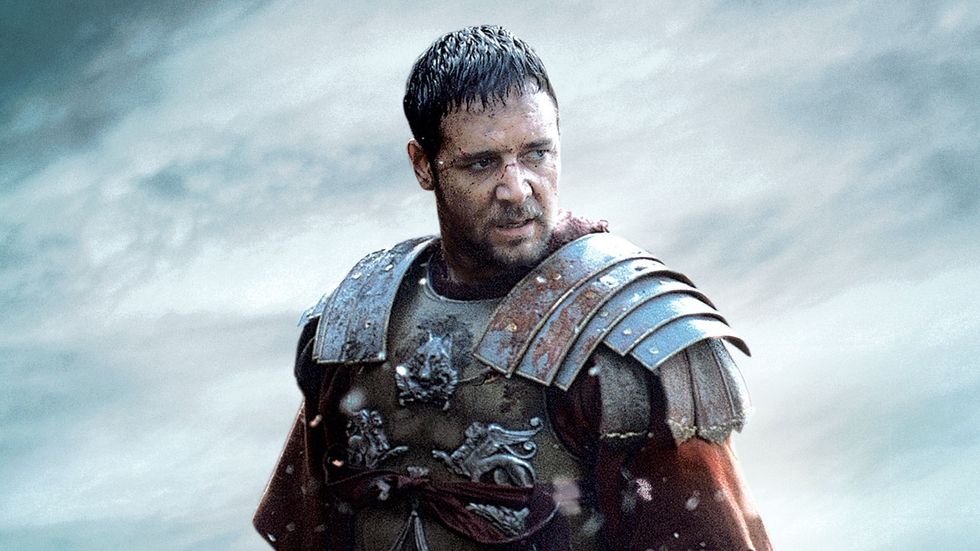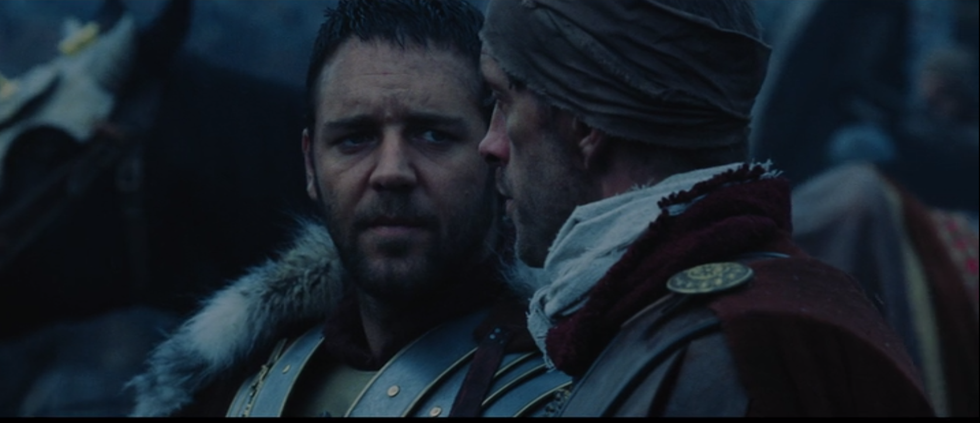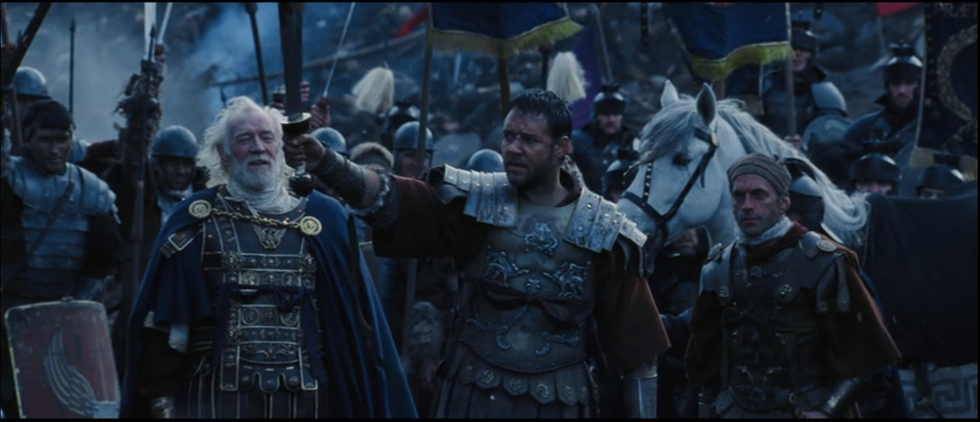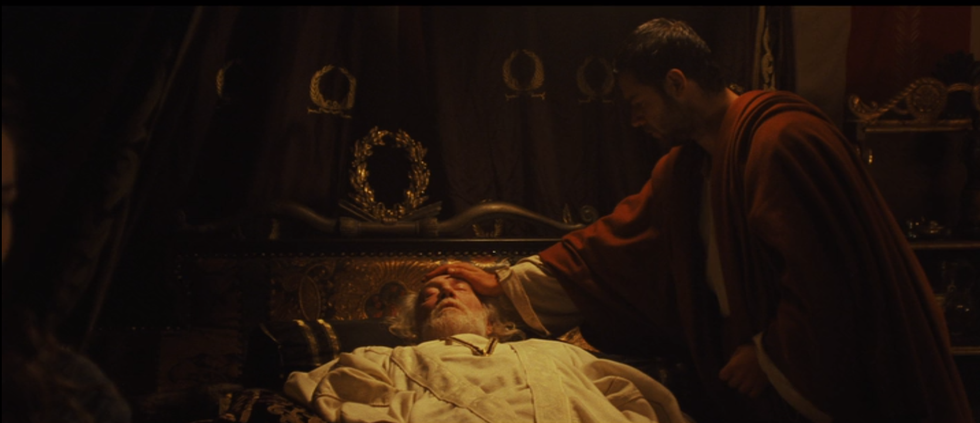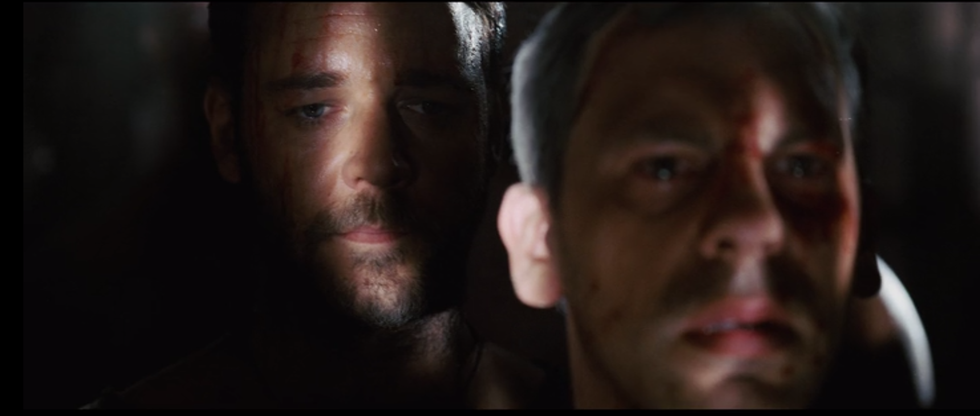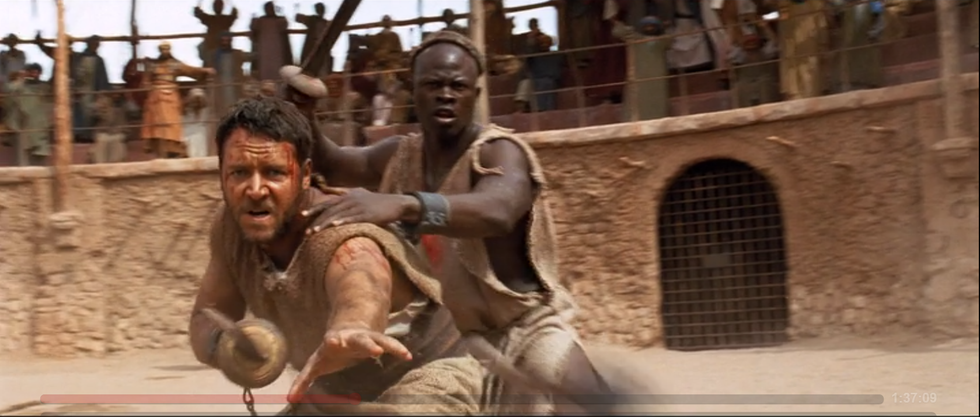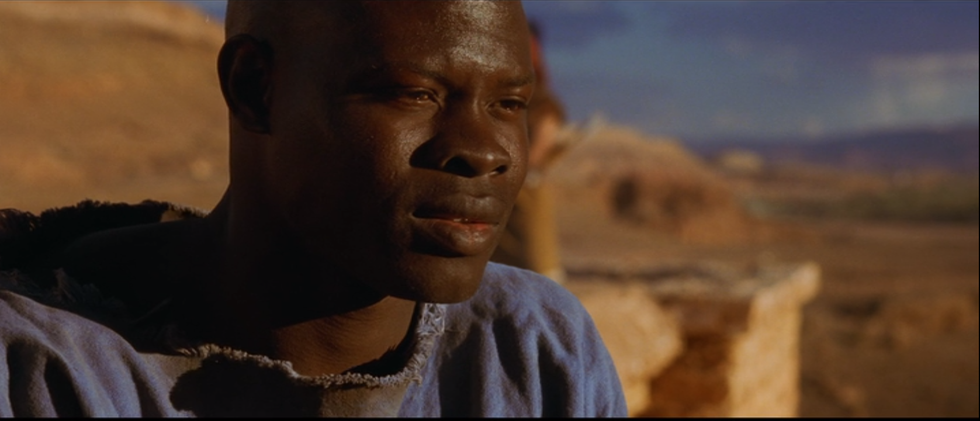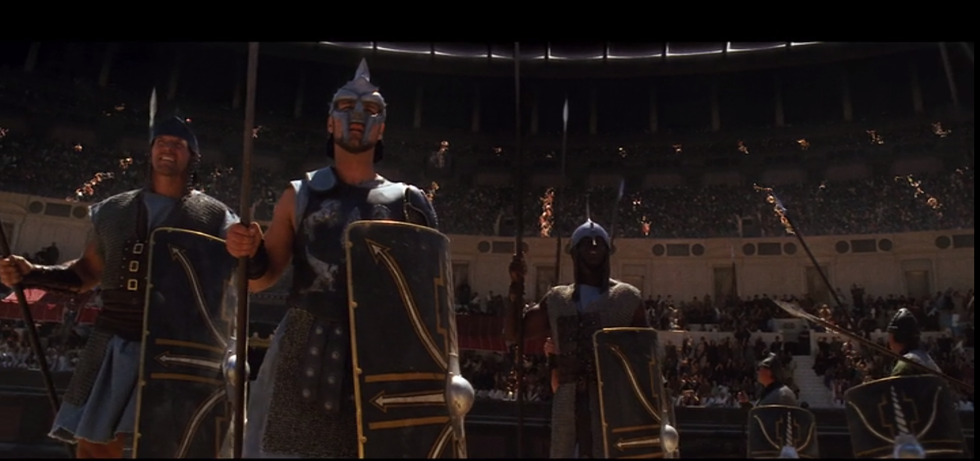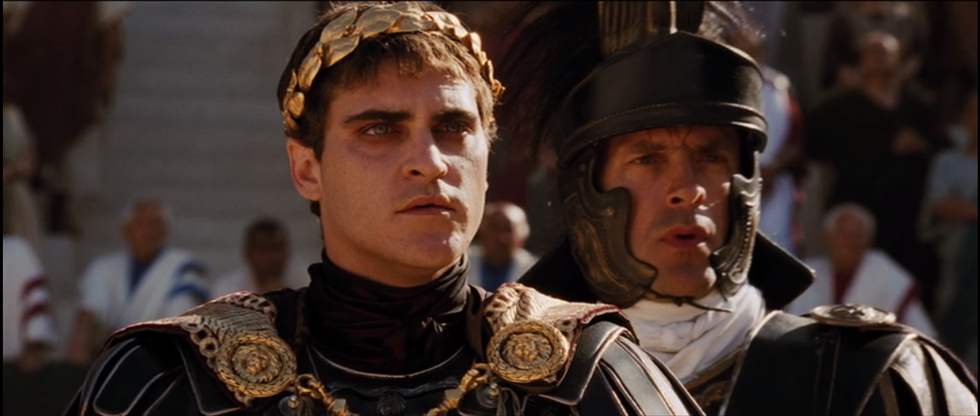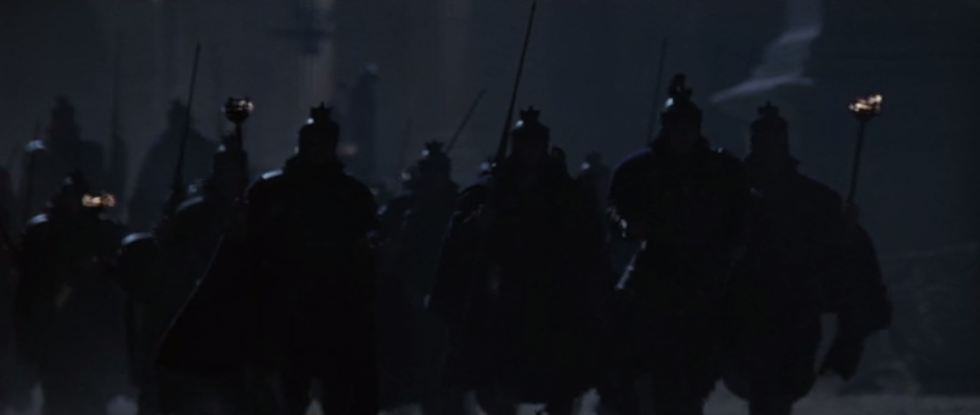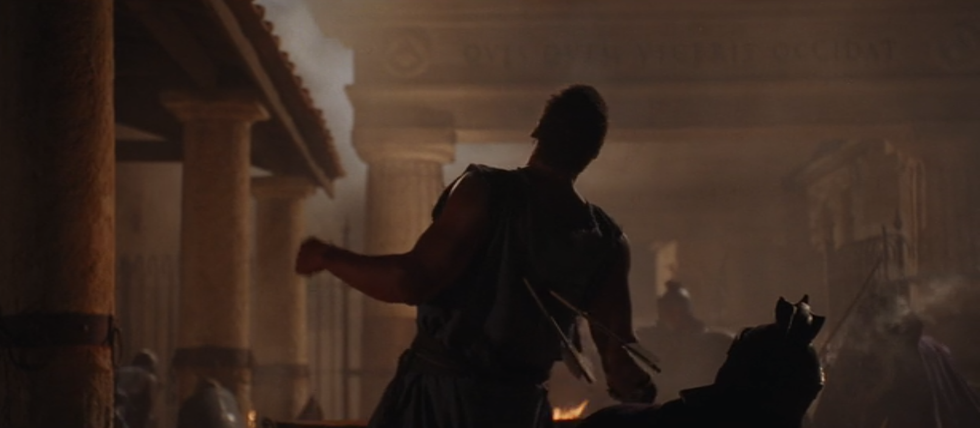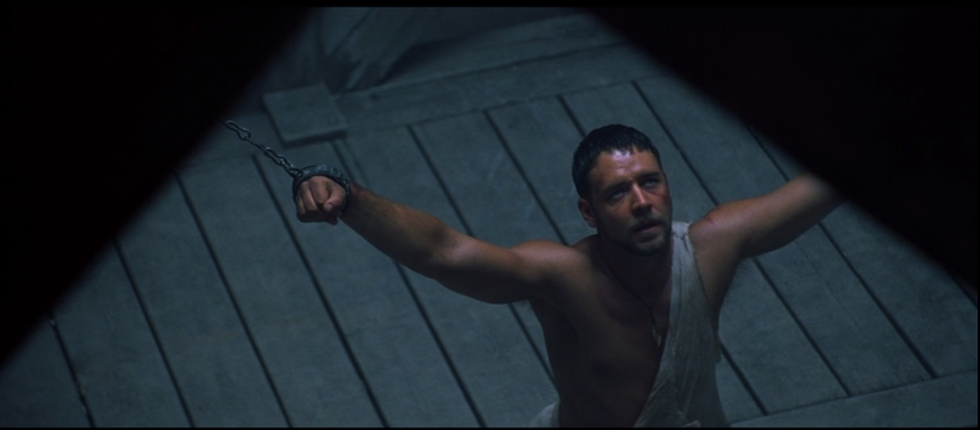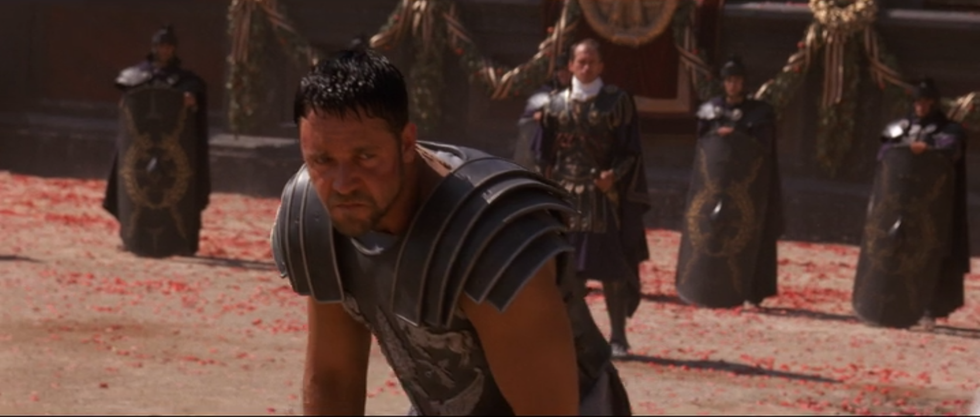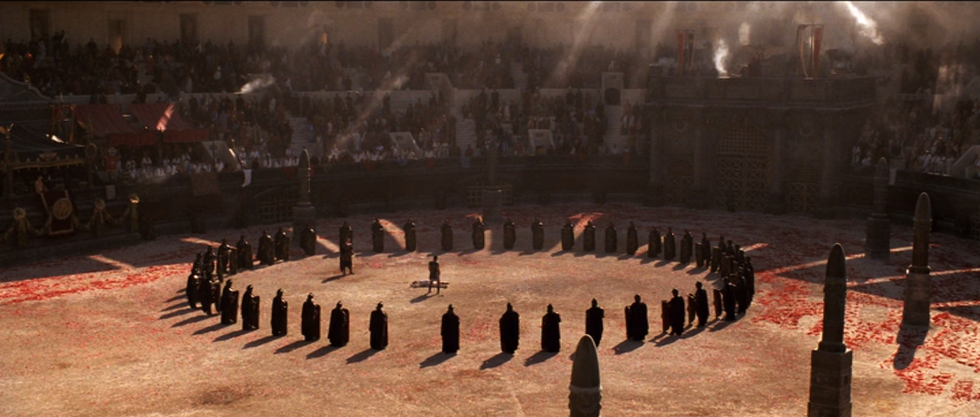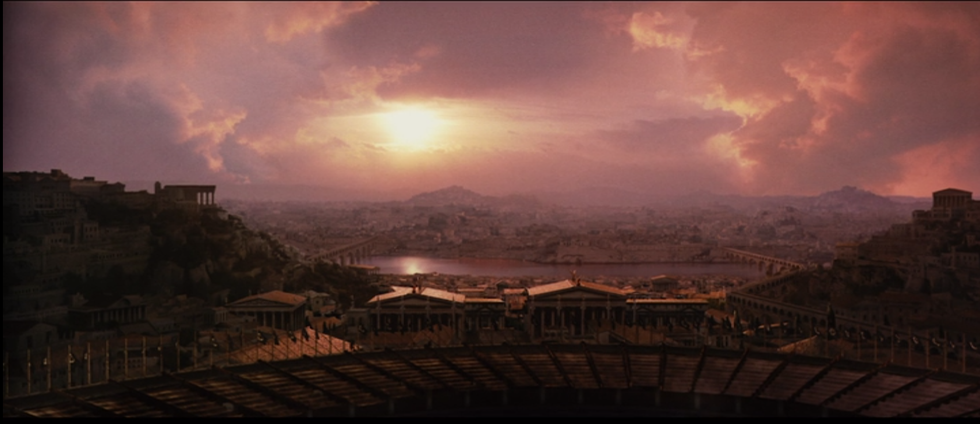Last week, I did a breakdown and analysis of "Starship Troopers." This week, I will do the same for "Gladiator," an epic story about glory, loss, and revenge in the famous Colosseum of Ancient Rome. By taking this Oscar-winning epic historical drama, disassembling it, and then inserting it into the mold of screenwriter Blake Snyder's '15 Beats,' a notable approach to writing a structurally sound screenplay, one can both learn about and appreciate just how decisive the story's major plot points are. As I will be discussing crucial parts of this film from start to finish, this article is not spoiler free. Continue reading at your own risk.
Act I
1. Opening Image
The first visual that is shown on screen, the opening image, sets the visual and emotional tones of the story.
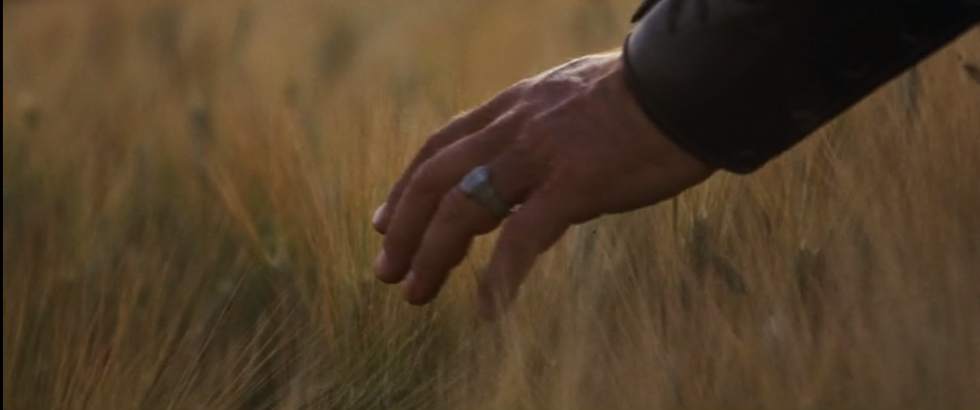
2. Theme Stated
A subtle declaration of the story's central theme; theme stated is often a line spoken to the protagonist as a form of foreshadowing.
After a failed truce with the last enemy army in Germania, General Quintus (right) mutters "People should know when they're conquered." To this General Maximus Decimus Meridius (left) counters with "Would you, Quintus? Would I?" A subtle moment, this line foreshadows the great challenges and tragedies that await Maximus, and his defiant refusal to accept defeat.
3. Set Up
The story's protagonist makes a pivotal decision that pushes them and the story from the first act into the second act.
Maximus proves himself to be a well-respected and formidable commander by decisively destroying the enemy army, and in the wake of this incredible victory, is proclaimed to be "Rome's greatest general" by Emperor Marcus Aurelius. Later that night, the emperor confesses that he wishes to transform Rome from an Empire back to a Republic, and asks Maximus to be his heir, as his own son, Commodus Aurelius, is corrupt and unworthy.
4. Catalyst
The precise moment where the story takes a drastic turn, the protagonist is now no longer able to go backward, only forward.
After discovering that his father has named Maximus the successor to Rome, Commodus Aurelius kills him in order to seize power, making the emperor's death look like it was of natural causes in the process. Maximus, suspicious that Marcus was killed by Commodus, refuses to swear allegiance to the new emperor. This leads Commodus to order Maximus executed for his defiance.
5. The Debate
In the aftermath of the catalyst, the debate is a crucial moment where the protagonist contemplates what to do and how to do it.
Barely escaping the execution with his life, Maximus flees to his home in Spain, only to find his wife and son murdered by Commodus' troops in response for his betrayal. In his grief he is kidnapped and sold as a gladiator in Zuccabar, a North African province in the Roman Empire. Already sick of fighting from his campaign in Germania against the barbarians, Maximus debates whether or not to fight as a gladiator.
Act II
6. Break Into Two
The story's protagonist makes a pivotal decision that pushes them and the story from the first act into the second act.
Despite being sick of bloodshed and of fighting, Maximus decides to fight as soon as he is thrown into the pits to fight in his first match as a gladiator. Choosing to live and to defy his captors, he pushes his story into the second act.
7. B Story
A plot point dedicated to smoothing out the transition from act one to two, the B Story marks the beginning of a subplot where the theme of the movie is usually discussed between the protagonist and another character.
In an emotional conversation, Juba, a fellow gladiator, confesses to Maximus that he will most likely die and have to wait many years in the afterlife before meeting his wife and daughter. In response, Maximus confesses that his murdered wife and son are already waiting for him. To this Juba states "You'll meet them again. But not yet. Not yet." Tying back to the "theme stated" plot point, Juba's remark further elaborates that while death awaits everyone, it is able to be delayed, depending on one's actions.
8. Promise of the Premise
Also known as "Fun and Games," the promise of the premise is a time of exploration, character development, and world-building.
In their first battle at the Colosseum, Maximus and his fellow gladiators are thrust into a battle reenactment in which the party they represent was famously defeated in the Battle of Zama. But against all odds, Maximus' incredible ability to rally his fellow gladiators to him like soldiers to a general leads them to victory over the tactically and strategically advantaged enemy.
9. Midpoint
Rather self-explanatory, the midpoint marks a dramatic shift in the second act, and depending on the story, includes a false defeat or false victory.
Impressed with Maximus' skill, Commodus requests an audience with him thinking that he is someone else. But when ordered to take off his helmet, which hid his identity, Commodus and all of the Colosseum's spectators are surprised to see that Maximus is still very much alive, and shocked to see an esteemed former Roman general become a lowly gladiator.
10. Bad Guys Close In
A representation of mounting opposition against the protagonist, it also symbolizes a rise in tension as the story heads towards the end of the second act.
11. All is Lost
The protagonist here suffers a crushing defeat, the opposite of either the false victory or false victory they achieved at the midpoint.
Planning on escaping Rome and reuniting with his army — who is still loyal to him — so that he may return to and force Commodus out of power, Maximus prepares to leave when all of a sudden Commodus' troops storm the gladiator compound. In the ensuing battle, many of Maximus' friends and allies are slain as they fight to give him enough time to escape. However, their sacrifices were in vain as Maximus is later lured into a trap and captured.
12. Dark Night of the Soul
After being captured and brought back to the Colosseum, Maximus sinks to his lowest point. Not only has he lost his wife, child, newly made allies and friends, he has also lost what he perceived to be his last chance at exacting revenge against Commodus.
Act III
13. Break Into III
With nothing else to lose, the protagonist suddenly gains a surge of determination, giving them the strength to push the story into act three.
Wishing to kill Maximus himself and to reassert his dominance and power to the people of Rome, Commodus challenges him to a one on one fight in the Colosseum. Even though he was wounded by the emperor beforehand so that he stands a lesser chance of winning, Maximus still chooses to fight.
14. Finale
Pooling together everything they have experienced and learned throughout their journey, the protagonist finally achieves victory.
15. Final Image
The last visual before the credits, the final image is different than the opening in order to signal dramatic change has occurred.
The winner of five Academy Awards, including Best Picture, Best Leading Actor (Russel Crowe as Maximus), Best Visual Effects, Best Costume Design, and Best Sound Mixing, "Gladiator" is a must-see for movie enthusiasts who can handle the film's strong R rating. It can be purchased as a DVD or Blu-Ray on Amazon, or viewed on Netflix.

